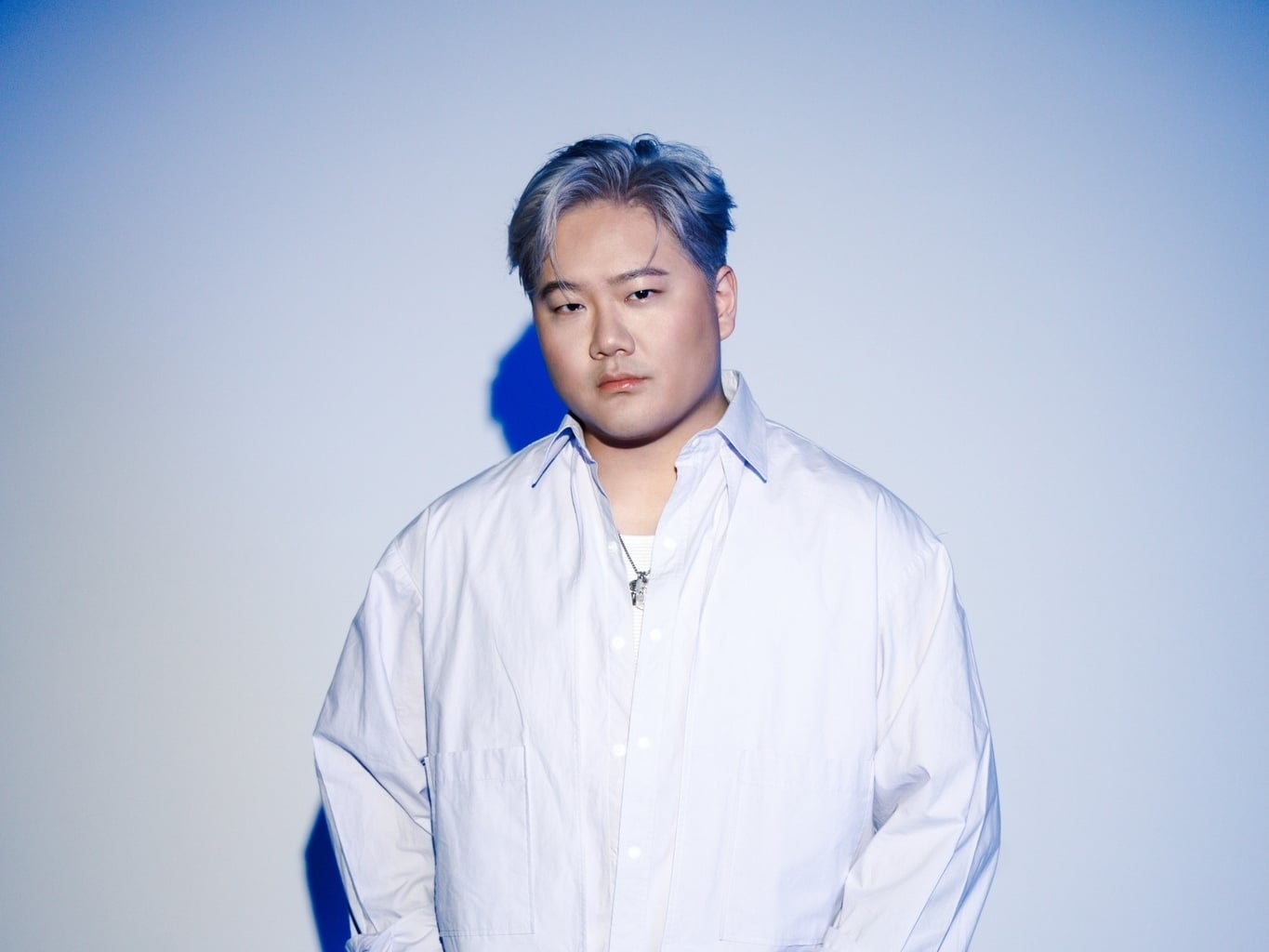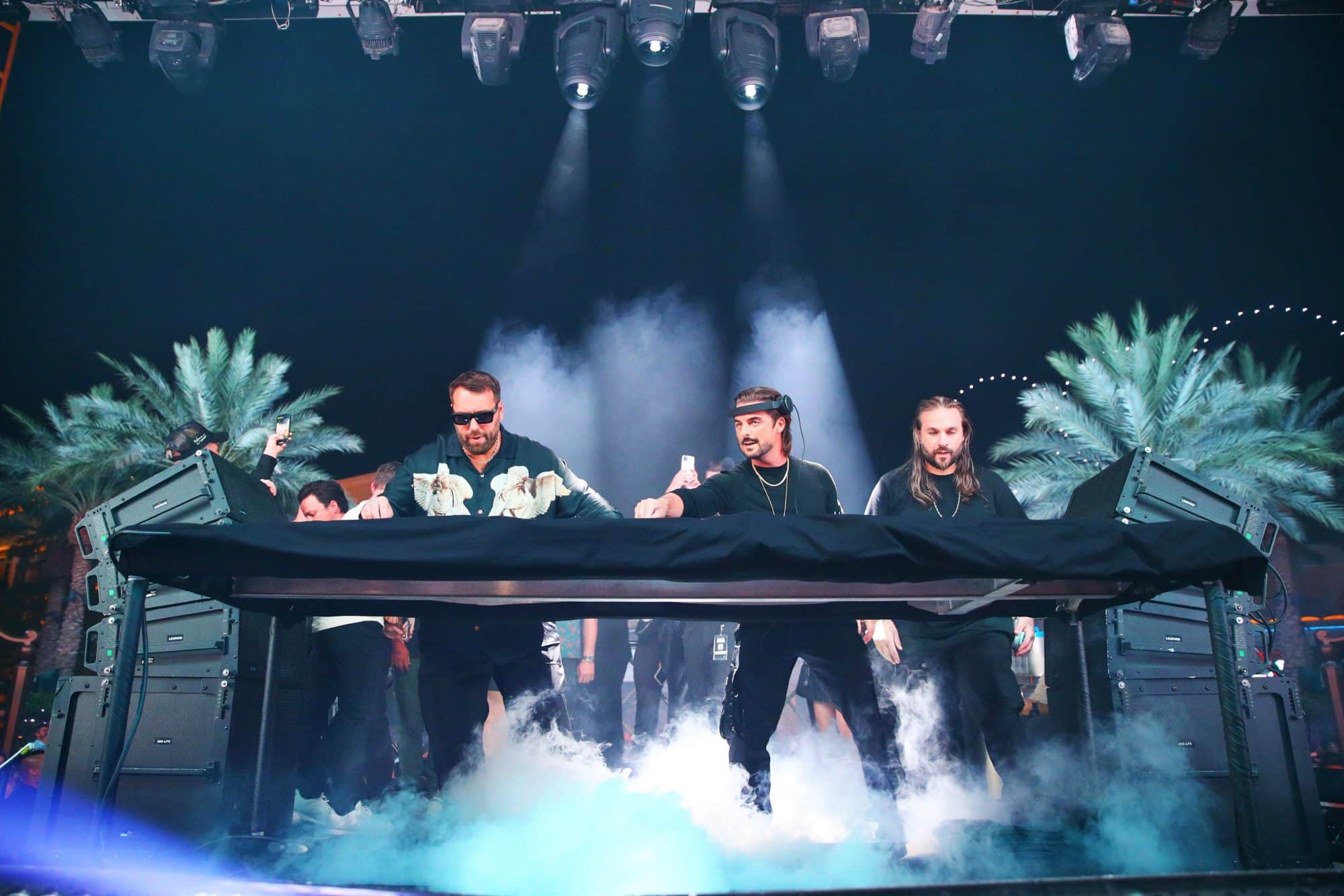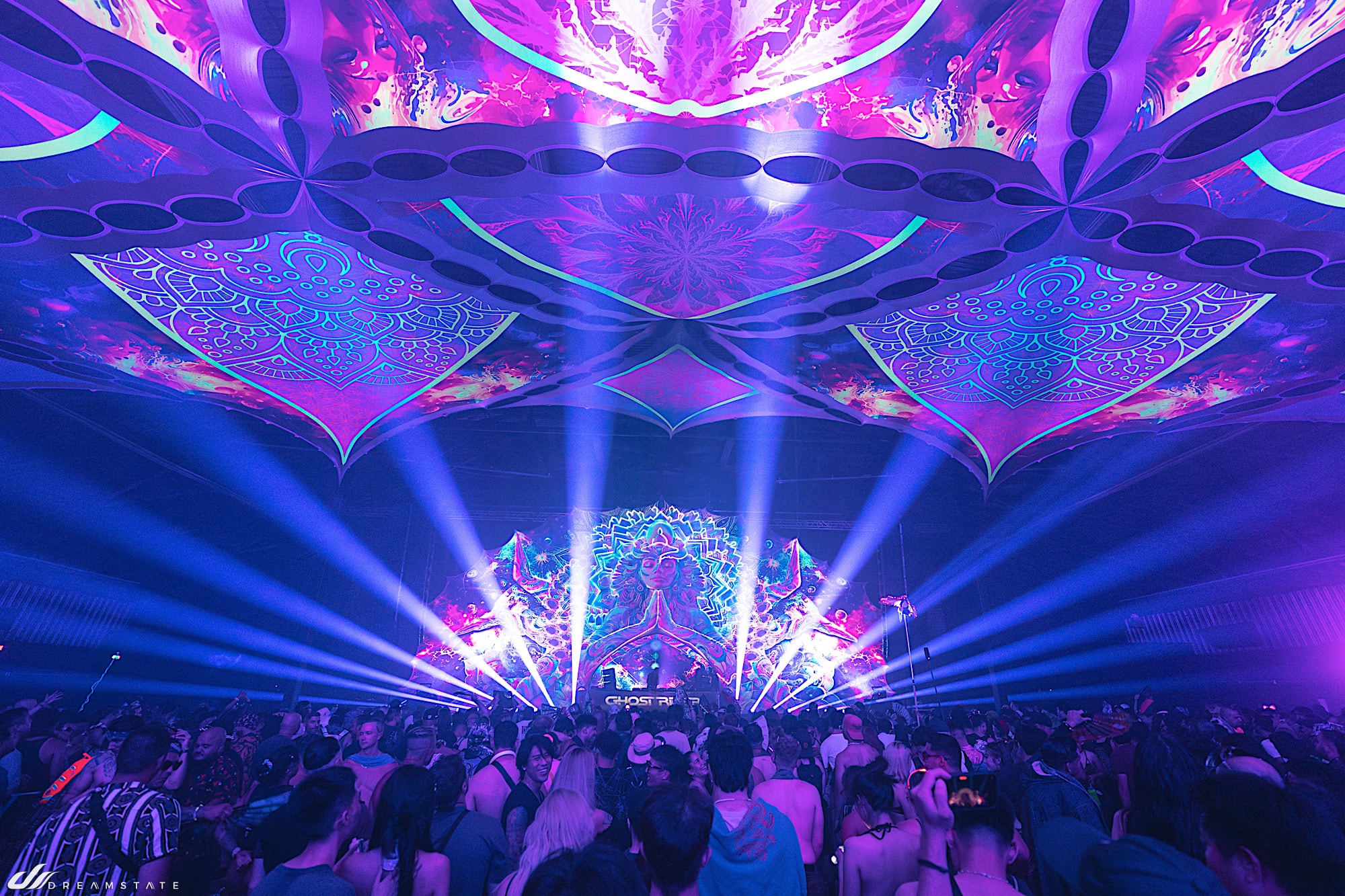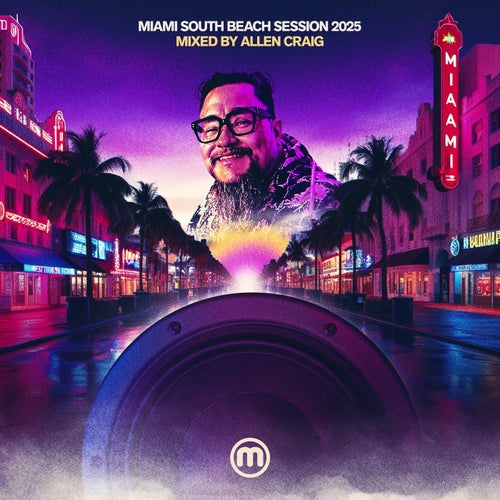If a good showcase festival should feel like being let in on a series of secrets, an excellent one should connect the dots between them on a deeper level – and that’s where Tallinn Music Week comes into its own.
Still under the direction of Helen Silda, who founded the festival back in 2009, Tallinn Music Week – or TMW to its friends – has grown into one of the most significant events in the European festival calendar, knitting together thousands of people each April for four inspiring days of concentrated culture and vital conversation.
It helps that the city is roundly charming, even postcard pretty, and not just where the Old Town’s pastel buildings meet the languid springtime sunlight. Tallinn has charisma everywhere you look, even outside of the medieval walls – from the repurposed factory complex of Telliskivi Creative City, where most of TMW takes place, to the post-industrial Noblessner Quarter, where brave souls sauna in igloo-shaped huts then file out in surrender to the bracing Baltic wind. It’s full of surprises, even for a third-time visitor like me, with a year-on-year appeal that few other European cities of its size can match.
Easily impressionable, I first came to Tallinn 14 years ago almost entirely off the back of Maria Minerva’s mysterious, dare-I-say-hypnagogic pop record Tallinn at Dawn, which had the blogosphere heated at the time I booked my flight. Having done precious little research beyond that, I remember arriving to an overly fancy spa hotel by the harbour, across from the old-world Sadamarket bazaar (still standing, still completely out of time), and feeling slightly thrown off balance. I’m not sure what I thought Minerva’s mutant daydream pop was preparing me for, but it wasn’t exactly that.
This is relevant only in terms of what happened next, which was the entirely unplanned coincidence of that weekend being the 20th anniversary of Estonia regaining its independence from Soviet rule. You might have heard of the Singing Revolution (if not, read this), but you might not know that Iceland was the first country to recognise Estonia’s sovereignty, in August 1991. And, on this particular weekend, Tallinn was saying thank you in a big way, with Icelandic artists performing all over the city as part of Iceland Day. Bouncing eagerly around from venue to venue, via talks, museums, and lively Old Town bars, it struck me more than once how lovely a gesture it was to turn a national celebration into a pluralistic one.
 TMW Welcome Desk by Saari Sildos
TMW Welcome Desk by Saari Sildos
It's a thought that comes back to me several times over the course of this year’s Tallinn Music Week. As a relatively small country living alongside the threatening shadow of a much larger, antagonistic neighbour, Estonia knows the importance of allies. It knows the strength of a united front. And, as TMW proves over and over, it knows – perhaps more than most – that culture has our hearts and minds on speed dial, providing an infinite framework for connection and making bitter pills that much easier to swallow.
To borrow the words of Estonian musicologist Maria Mölder, culture also “contains a will to protect,” and this manifests at TMW in multiple ways. There’s of course its generous provision for preserved musical traditions from the Baltic region, but beyond that is TMW’s extended open arms to other nations under threat: Ukraine, Taiwan, and – bizarre as it feels to write it down in black and white – Canada are all focus countries for the 2025 event. It’s something that former Estonian president Kersti Kaljulaid references in her stirring speech at the launch of TMW’s conference programme, even quipping that Denmark should have a seat at the table in light of Donald Trump’s Greenland offensive.
 TMW Conference Opening by Rasmus Jurkatam
TMW Conference Opening by Rasmus Jurkatam
Jokes aside, TMW takes its role as ambassadors of cultural diplomacy very seriously, in and out of the conference rooms. This year, 217 artists from 36 countries are here, representing the global music community from Tanzania to Iceland, via Palestine, Japan, and Uzbekistan. Roughly half of those are homegrown Estonian acts, including TMW regulars Kitty Florentine, Duo Ruut, and Iiris Vesik, who now fronts London-based trio Night Tapes – winners of this year’s Music Moves Europe Award at showcase festival giant ESNS – plus the “two-headed saurus” of Ajukaja & Mart Avi, two legends of the Estonian underground and faves of Maria Minerva’s.
The first night starts shoeless and gently at Tellisviki’s Club of Different Rooms, where guests are asked to swap their footwear for Estonian slippers to (I assume) protect the parquet floor. The airline-themed Taiwan showcase takes place here, in a welcoming performance space that’s decked out like several living rooms smashed into one, with dozens of sofas and mismatched armchairs.
 Chung-Ching Chen by Elena Mkrtchian
Chung-Ching Chen by Elena Mkrtchian
First on stage is Chung-Ching Chen, a scarlet-clad cognoscente of the liuqin, a pear-shaped Chinese mandolin, and its more rounded lute cousin the ruan. Performing with skilled percussionist Alex Wu, she brings her 2024 album The East is Not a Fantasy to life with highlights being the title track, a hypnotically reworked version of “Guaracha”, and a lively improvised cover of “Forró Brasil” by Brazilian composer – and Chen’s “super-idol” – Hermeto Pascoal. Later, I catch a (tragically) few songs by experimental sibling trio Outlet Drift from Taitung in southeast Taiwan, fronted by Wushang and Putad Pihay. I don’t know a word of their mother tongue Amis, but they are absolutely joyous to watch.
Heading over to the Tallinn outpost of photography gallery Fotografiska, founded in Sweden 15 years ago, I catch Icelanders Oyama performing songs from their 2024 album Everyone Left, building an impressive, shoegaze-adjacent wall of reverb-smocked guitars and punchy rhythms, topped off by some lovely harmonies from Júlía Hermannsdóttir and Úlfur Alexander Einarsson. I can equally recommend Tallinn’s own up-and-coming prog-pop quintet Neon Fir, fronted by the headphone-sporting, tambourine-shaking Eeva Trei. New single “Sun”, out on local label Backstage Records, is both playful and poetic with its references to whispered secrets, sacred vows, and a Roman dam metaphor that comes out of nowhere.
Over in the Made in Canada camp I find Montréal-based quintet Rosier – formerly known as Les Poules à Colin – offering wholesome, bilingual dream-pop that would have gone down a lot more smoothly in a darker room with thick ribbons of dry ice. Back at Fotografiska, Norwegian artist Silje Espevik, aka Yndling, wins me over with her spirited and slightly goth performance. Newest single “As Fast As I Can” is a Slowdive-ish standout, suggesting that the best is still to come for the shoegaze lover. Her second album will be released in two halves, she says, with the first part coming in June.
Summer feels an awfully long time away come the second day of TMW, which welcomes snow and the kind of thick, wet sleet that turns the city’s medieval arteries into gushing sluiceways, soaking through my shoes. But first, down to business as I guest on a ‘jukebox jury’ panel with colleagues from journalism and radio, offering hot takes and hopefully some considered thoughts on a dozen or so song submissions, mostly from Baltic region artists, from the lewd hyper-rap of Tallinn’s self-styled #1 prince$$ Ines DaFerrari to the windswept post-punk of Kyla Vėjas! from Lithuania.
 Alonette by Veronika Gluškova
Alonette by Veronika Gluškova
Among the many highlights is Estonian singer/songwriter Anett Tamm, aka Alonette, whose updated Karen Carpenter vibe puts her on a footing with artists like Weyes Blood and Canada’s The Weather Station. Performing under the cascading plastic flowers of the Fotografiska stage later that night, the storytelling songs from her recent debut album Compass sound even more convincing, delivered with a touch less restraint.
At the ÅÄÖ…Sounds Swedish showcase, I catch an intriguing set from Ellinor Sterner Bonander, or Bonander for short, full of slightly witchy chamber-pop alongside bold symphonic strokes that you could comfortably align with the likes of Susanne Sundfør, whose influence is clear. Dutch-born Malin Verheij, now living in the Arctic north of Sweden, offers more classic, careful singer/songwriter fare that could stand to be a bit more distinctive but lovely all the same, graced with her effortlessly soaring voice.
 Vulva Voce by Regina Kaasik
Vulva Voce by Regina Kaasik
Over at the Classical:NEXT showcase, distinction isn’t an issue for the amusingly named Vulva Voce, aka Julia, Georgina, Nadia, and Lucy – four women demolishing expectations of what a string quartet can be with unconventional takes on works by Pauline Oliveros, Caroline Shaw, and lute-playing Italian Renaissance composer Maddalena Casulana. Most unconventional of all, though, are their own compositions, particularly “Hysteria”, where Casulana’s 16th century madrigals meet industrial techno. It really has to be seen to be believed.
The night continues from there with three local-ish artists, starting at Fotografiska with celebrated Estonian–Swedish accordion maverick Tuulikki Bartosik who performs as The Rocket alongside Swedish musicians Svante Söderqvist, Adam Forkelid, and Calle Rasmusson. Bartosik is kind of a big deal around here, and the room is packed. Deservedly so, too, as The Rocket have something timeless but uniquely special going on.
 Hanakiv by Regina Kaasik
Hanakiv by Regina Kaasik
Back at the Club of Different Rooms, I catch a few songs from pop-rock band Minimal Wind, who were recent finalists in Eesti Laul, an annual song contest that determines the Estonian entry for Eurovision. Although they won’t be competing in Switzerland this May, the Paula Pajusaar-fronted quintet have clearly won a few new ardent fans. Then, for the finale of the Classical:NEXT showcase, I sit blissfully through a half hour of contemporary classical heaven from Tallinn-born but London-based Hanakiv. Accompanied by cellist Rebecca Burden, sound issues necessitate a last-minute change to the setlist and we’re treated to something new, gently clouded with electronics.
If there is one rule of TMW – besides not being a dick – it’s arguably that you have to see at least one act performing at the ever-popular Fenno-Ugria Night, which this year welcomes acts as diverse as Eastern Mari folk trio Trepp, Setonic (as in the Seto language, not a typo of Satanic) black metal act Langenu, and the Northern Sámi eco-prog-rock quartet Ravggon. This showcase, curated by a non-profit organisation that platforms Finno-Ugric and Samoyedic artists (“Estonia’s kindred peoples”), is TMW’s cultural diplomacy in hyper-localised form, celebrating Indigenous languages and musical traditions in style. Fronted by Milla Elmiina Pulska, the Finland-based Ravggon are compellingly raw, almost ritualistic, and well worth checking out.
 Ravggon by Elena Mkrtchian
Ravggon by Elena Mkrtchian
The closing day of TMW starts with a trip out to the forests of Laulasmaa to visit the museum built in honour of Estonian’s all-time greatest composer Arvo Pärt, who turns 90 this coming September and lives just down the road. Innovator of the tintinnabulation compositional technique, which he sagely describes as “one and one makes one,” Pärt’s influence on the past 50 years of music simply cannot be exaggerated – it’s too immense already – and our brief but meaningful visit to his archives set a reflective tone for the day.
Back in Tallinn, with snow still on the ground, the night starts with Estonian, Lithuanian, and Latvian trio The Baltic Sisters at the Club of Different Rooms. Building on their early shared passion for ancient Lithuanian multi-part songs called sutartinės, they’ve expanded their repertoire to include Estonian and Latvian traditional singing. It’s already striking to hear when they sing in one language, but when they overlay three different songs in three different tongues – each about cuckoos – the result is quite staggering.
 Sisso & Maiko by Karolin Linamaë
Sisso & Maiko by Karolin Linamaë
Later, at the same showcase, Mari Kalkun (an avowed Arvo Pärt fan, by the way) makes her looped and bird-like folk songs seem dazzlingly effortless. “Leelu”, from 2023’s Stories of Stonia, is particularly lovely. Kalkun gets the crowd to sing along and not one voice falters as she disembarks the stage to wander through the furnishings, all the way to the back of the room. It’s the closest I’ve come to prayer in decades.
On another thread entirely, Saturday night picks up the pace with the sublime Ani Glass, with her winning, Welsh electro-pop and down-to-earth appeal, before Tanzanian duo Sisso & Maiko turbocharge us into a whole other dimension. Hitting a deliriously bonkers number of beats per minute, their avant-garde take on the singeli dance form is like repeatedly hitting a zero-G roll on a wooden rollercoaster: unimaginably fun, but feels unwise. Sisso & Maiko are as impossible to look away from as they are to stand still to, using their headscarves as blindfolds and threading lawless samples through their mile-a-minute songs. “Jingle Bells” in April? Evil genius at work.
 Lucy Dreams by Andi Kokk
Lucy Dreams by Andi Kokk
Leaving the scene of the crime, I laugh at the irony of having spent the morning at Pärt’s place contemplating the power of space in composition, where Sisso & Maiko leave none. But there’s room for everything at TMW, including an act with an artificial band member. The Austrian trio of Lucy Dreams, aka David Reiterer (Zero), Stephan Paulitsch (One), and their AI Lucy – represented onstage tonight by a spinning, glowing plasma ball – are an entertaining collision of digital and analogue textures. There’s rightly a lot of criticism around AI entering into creative spaces, but there are productive conversations to be had too. With their self-styled ‘SonicWaveArtPop’, the Vienna-based band are advocates for an integrated virtual world that’s progressive and peaceful, where technology is a tool “but not the destination.”
Crucially, whatever your feelings on AI, Lucy Dreams put on a quite irresistible show: a little campy, a lot of heart. Highlights include recent single “Be Here Now”, from upcoming album VVVVV, and a frankly inspired reimagining of Arctic Monkeys’ “Do You Wanna Know?” Reiterer makes a great frontman, floating and flailing around the stage in an oversized suit, while Paulitsch plays it cool in a thigh-length, teal leather jacket and a low-slung bass guitar, and the contrast is compelling.
 Bashar Murad by Sandra Süsi
Bashar Murad by Sandra Süsi
The Saturday gold medal, though, has to go to queer Palestinian artist Bashar Murad. Having caught just a snippet of his performance at Berlin’s Pop Kultur last summer I knew some of what to expect, but this was on another level. From his pointed cover of Nina Simone’s “I Wish I Knew How It Would Feel to Be Free” – sung half in Arabic, half in English – to the closing freedom cry “ITSAHELL!”, Murad’s audacious, political art-pop cuts through with 100% authenticity.
Whether he’s singing blindfolded in an enormous, ruffled black gown or half-stripped to the waist and waving a Palestinian flag, Murad’s message is crystal clear and all the powerful for it. He sounds amazing, looks amazing, is amazing. And with a debut album out hopefully out later this year, co-produced with ‘90s legend Howie B (Björk, Massive Attack), there’s a lot more to come.
Of course, as with any festival where there’s simply too much going on, there are plenty of artists I was only able to listen to after the fact. Finland’s Sophia Mitiku and Us are two well worth checking out, as are Ukrainian artists Mariia Yaremak and Maryana Klochko, both talented composers working across different mediums. Listening to Klochko’s recent, heart-stilling adaptation of Mykola Vingranovsky’s 1965 poem “two troubles out of the blue”, I’m reminded of the words of Maksym Kononenko, ambassador of Ukraine to Estonia, in his conference opening speech.
“The shadow of death makes us feel more deeply,” he said, and I think that holds a lot of truth even for those of us not directly in the line of fire. Or at least those of us who are paying attention. To suffering and war, to apartheid and injustice, to climate disaster. And, to its great credit, TMW never looks away from these things. Instead, it bridges them together, connecting the dots, to the point where it doesn’t feel like ‘just’ a festival but a whole progressive movement. Seventeen years in, Tallinn Music Week still has plenty to say, and long may it continue.

 1 day ago
6
1 day ago
6


















 English (US) ·
English (US) ·